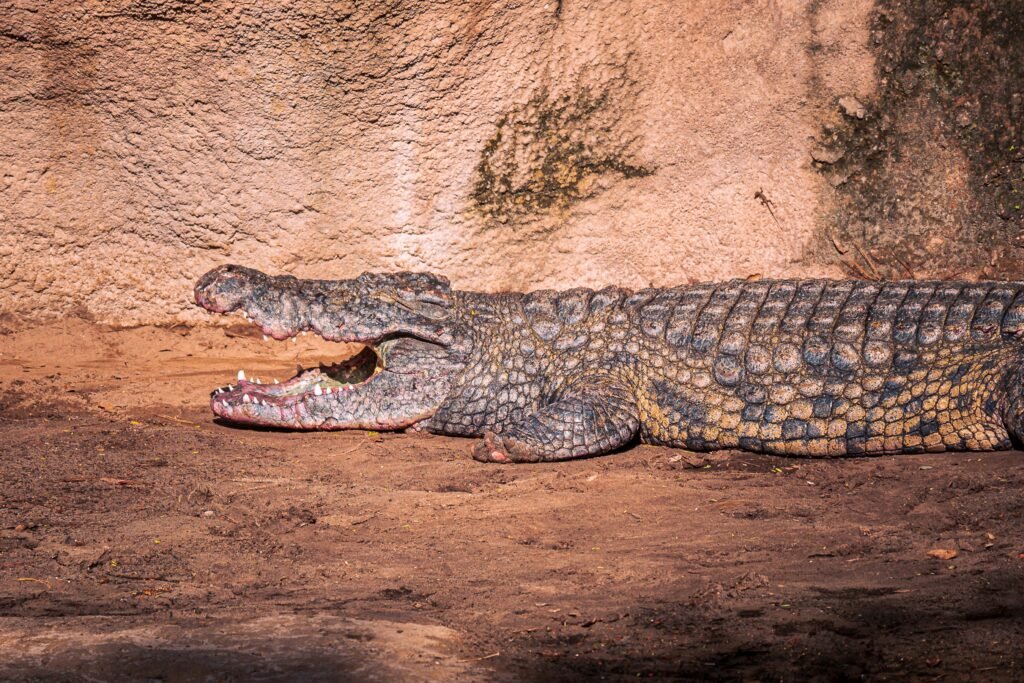Exploring Animal Welfare Issues in Alligator Leather Production
Unveiling the Process of Alligator Leather Production
Did you know that alligator leather is a luxury material used in fashion, accessories, and home decor? This exotic skin is highly coveted for its unique texture, durability, and status symbol. But have you ever wondered about the animal welfare issues surrounding alligator leather production? Let’s delve into this topic and explore the ethical considerations involved in the making of this luxurious material.

This image is property of images.unsplash.com.
Alligator Farming: A Closer Look
When it comes to alligator leather production, the first step begins with alligator farming. Alligators are raised on farms specifically for their skins, which are then used for luxury goods. These farms can either be wild or captive-bred, with varying levels of regulations and standards.
The conditions in which alligators are raised on farms can greatly impact their welfare. Some farms prioritize profit over animal welfare, leading to poor living conditions, lack of proper nutrition, and inadequate space for the animals to move around. On the other hand, there are farms that adhere to strict guidelines and regulations to ensure the well-being of the alligators.
Before purchasing a product made from alligator leather, it’s important to consider where the alligators were sourced from and how they were raised. Supporting ethical and sustainable practices in alligator farming can help promote animal welfare and ensure the humane treatment of these reptiles.
Sourcing Alligator Skins Ethically
The sourcing of alligator skins plays a crucial role in the overall ethical considerations of alligator leather production. Alligator skins can be sourced from both wild populations and captive-bred farms, each with its own set of challenges and implications for animal welfare.
Wild alligator populations are often subject to poaching and illegal harvesting, which can have detrimental effects on the ecosystem and population numbers. On the other hand, captive-bred farms can help alleviate the pressure on wild populations and provide a regulated environment for raising alligators.
When selecting products made from alligator leather, it’s essential to choose brands that source their materials ethically and transparently. Look for certifications and labels that indicate sustainable practices and animal welfare standards. By supporting ethical sourcing practices, you can contribute to the conservation of wild alligator populations and promote responsible production methods.
The Reality of Alligator Slaughter
One of the most controversial aspects of alligator leather production is the process of slaughtering the animals for their skins. Alligators are typically killed to harvest their hides, a practice that raises ethical concerns and questions about the humane treatment of these reptiles.
The methods used to slaughter alligators vary, with some farms using more humane practices than others. Stunning the animals before slaughter and ensuring a quick and painless death are essential factors in determining the ethicality of the process. However, cases of inhumane treatment and cruelty towards alligators have been reported in the industry.
As a consumer, it’s important to be aware of the slaughtering practices employed by brands and manufacturers producing alligator leather goods. Choosing products from companies that prioritize animal welfare and ethical treatment of alligators can help support responsible practices in the industry.
Regulations and Standards in Alligator Leather Production
To address the ethical concerns surrounding alligator leather production, various regulations and standards have been put in place to ensure the humane treatment of animals and promote sustainable practices. These guidelines cover aspects such as farming practices, slaughter methods, and sourcing of alligator skins.
In the United States, the American alligator is protected under the Endangered Species Act, which regulates the harvesting and trade of alligator products. Alligator farms in the U.S. must adhere to strict guidelines set forth by the law to maintain sustainable populations and prevent overexploitation of the species.
Internationally, organizations like CITES (Convention on International Trade in Endangered Species of Wild Fauna and Flora) regulate the trade of alligator products to protect wild populations and ensure ethical sourcing practices. Brands and manufacturers are encouraged to obtain certifications and adhere to these standards to demonstrate their commitment to animal welfare and conservation.

This image is property of images.unsplash.com.
Supporting Sustainable Alternatives to Alligator Leather
In light of the ethical considerations surrounding alligator leather production, many consumers are seeking out sustainable alternatives that offer the same luxury and durability without compromising animal welfare. Fortunately, there are several ethical and eco-friendly options available in the market.
One popular alternative to alligator leather is vegan leather, which is made from synthetic materials like polyurethane and cork. Vegan leather mimics the texture and appearance of animal leather without using animal byproducts, making it a cruelty-free and sustainable choice for conscious consumers.
Another sustainable option is fish leather, which is sourced from discarded fish skins that would otherwise go to waste. Fish leather offers a unique texture and aesthetic appeal, providing a cruelty-free alternative to exotic animal skins like alligator leather.
By exploring and supporting sustainable alternatives to alligator leather, you can make a positive impact on animal welfare and environmental conservation. Choosing products that align with your values and beliefs can help drive change in the fashion industry and promote ethical practices in leather production.
The Role of Consumer Awareness in Alligator Leather Production
As a consumer, your purchasing decisions have the power to influence the practices and standards of alligator leather production. By educating yourself about the ethical considerations involved in the making of alligator leather goods, you can make informed choices that support animal welfare and sustainability.
When shopping for products made from alligator leather, take the time to research brands and manufacturers that prioritize transparency and ethical sourcing. Look for certifications and labels that indicate adherence to animal welfare standards and sustainable practices.
Additionally, consider supporting brands that offer sustainable alternatives to alligator leather, such as vegan leather or fish leather. By choosing products that align with your values and promote ethical production methods, you can contribute to a more responsible and compassionate fashion industry.

This image is property of images.unsplash.com.
Conclusion
In conclusion, exploring the animal welfare issues in alligator leather production sheds light on the ethical considerations and challenges faced in the industry. By understanding the process of alligator farming, sourcing practices, and slaughter methods, we can make informed choices that support animal welfare and sustainability.
As consumers, we have the power to drive change in the fashion industry by choosing products that align with our values and beliefs. By supporting ethical and sustainable practices in alligator leather production, we can promote responsible production methods and contribute to the conservation of wild populations.
Together, we can make a difference in the way alligator leather is produced and consumed, creating a more ethical and compassionate future for the fashion industry. Let’s continue to advocate for animal welfare and environmental conservation in all aspects of our lives, starting with our purchasing decisions.


